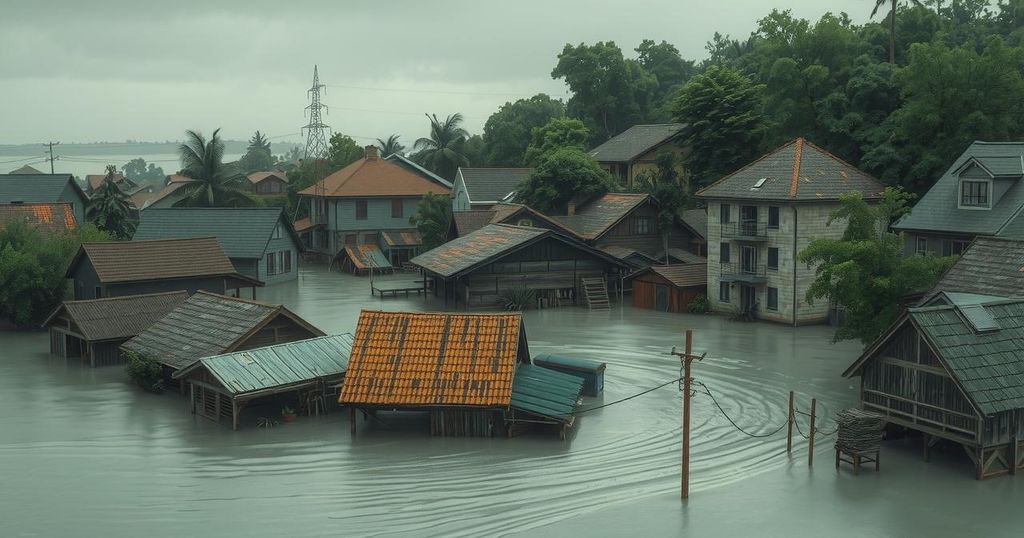Floods Kill at Least 111 as Northern Nigeria Battles Climate Change and Heavy Rainfall

Flooding caused by intense rainfall has killed at least 111 people in Mokwa, Nigeria. The area has suffered from climate change-related dry spells and subsequent heavy rains. Videos show neighborhoods submerged, with residents battling waters to salvage belongings.
At least 111 people have tragically lost their lives in northern Nigeria due to catastrophic flooding that occurred after intense rainfall overnight. The flooding devastated Mokwa, a town in Niger state, where local farmers typically sell their goods to southern traders. Officials have warned that the death toll may continue to rise in the coming days as the impact is fully assessed.
The Nigerian Hydrological Services Agency has yet to release details on the exact amount of rainfall that fell in Mokwa after midnight on Thursday. However, it is clear that northern Nigeria, particularly areas like Mokwa, has been grappling with the effects of both long dry spells and heavy rains, phenomena that are reportedly being intensified by climate change.
Residents are sharing alarming images on social media that depict the extent of the flooding. Many neighborhoods are inundated, with homes mostly submerged, their roofs just barely above the fast-moving brown waters. Individuals can be seen wading through waist-deep water, attempting to save belongings and help others in distress, showcasing the community’s resilience amid devastating circumstances.
In summary, the recent flooding in northern Nigeria has resulted in at least 111 fatalities, with many more potentially at risk as the situation continues to unfold. The dual challenges of climate change and erratic weather patterns are heavily impacting the region, particularly during the critical wet season. As communities come together to address the disaster’s aftermath, the need for systemic solutions to combat climate challenges remains pressing.
Original Source: nanaimonewsnow.com







